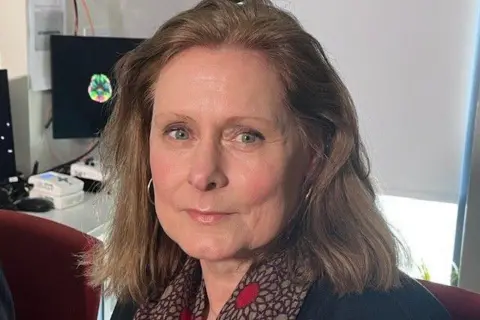Losing a child is an unimaginable pain,and for Sarah and Gordon Brown,it fueled a mission: to unravel the mysteries of premature birth. This article explores the vital work of the jennifer Brown Research Laboratory and the Theirworld Edinburgh Birth Cohort, a decade-long study seeking to understand and mitigate the long-term effects of preterm birth on a child’s developing brain. Discover how this research is offering hope and shedding light on the stark realities faced by families affected by premature birth.
“`html
BBC Scotland News

Getty Images
Gordon and Sarah Brown set up the Jennifer Brown Research Laboratory in 2004, in memory of their daughter
When Sarah and Gordon Brown’s daughter Jennifer died days after her birth in January 2002 there was an outpouring of support from the public.
The former prime minister was chancellor of the exchequer at the time and the couple’s high profile loss struck a chord with people who had experienced similar tragedy.
“For Gordon and I, losing Jennifer was the greatest loss and it’s one that stays with us,” Sarah tells BBC Scotland News. “That doesn’t change.”
The couple wanted to understand what had happened but doctors couldn’t offer an answer.
among the 13,000 letters of support were many from people with similar stories.
Sarah says she wanted to do more to look into the causes and consequences of premature birth.
“What I realised was that there was more we needed to understand, that I didn’t have answers for what had happened and so many other families didn’t either,” she says.

Sarah Brown wanted to look into the causes and consequences of premature birth
The couple set up the Jennifer Brown Research Laboratory in 2004, in memory of their daughter, who died just 10 days after she was born, seven weeks premature.
For the past decade,the Theirworld Edinburgh Birth Cohort has been a key part of the research laboratory’s work.
It is recording the progress of 400 children from birth to adulthood and aims to provide insights into the long-term effects of premature birth on the developing brain.
Preterm birth – when a child is born before 37 weeks – is the single biggest cause of death and disability among newborn babies and is a leading cause of impaired brain advancement in childhood.
Sarah says the study is learning more about how the body reacts, how nutrition and sleep can help, and the impact of maternal care.
She says it has also shown the “stark realities” of the impact of poverty.

Preterm birth is the single biggest cause of death and disability among newborn babies
The research laboratory is part of the University of Edinburgh and is working with the charity Theirworld.
Theirworld is a global children’s charity that works to give every child the best start in life.
The charity’s president, Sarah brown, says the research is vital to understanding the causes of premature birth and how to prevent it.
“We certainly know that preterm birth is the single biggest killer of babies and a leading cause of disability in children,” she says.
“We also know that the impact of preterm birth can last a lifetime, affecting a child’s development, their ability to learn, and their overall health and wellbeing.”
Sarah says the research is helping to identify the risk factors and develop interventions to improve outcomes for premature babies.
“By understanding the causes of preterm birth, we can work to prevent it and give every child the chance to thrive,” she says.
The Jennifer Brown Research Laboratory is also working on a number of other projects, including research into the impact of maternal health on preterm birth and the development of new treatments for premature babies.
The research is funded by a variety of sources, including the Scottish government, the medical Research council, and private donations.
Sarah says the research is making a real difference to the lives of premature babies and their families.
“We are making progress, but there is still much more to do,” she says. “We need to continue to invest in research and work together


